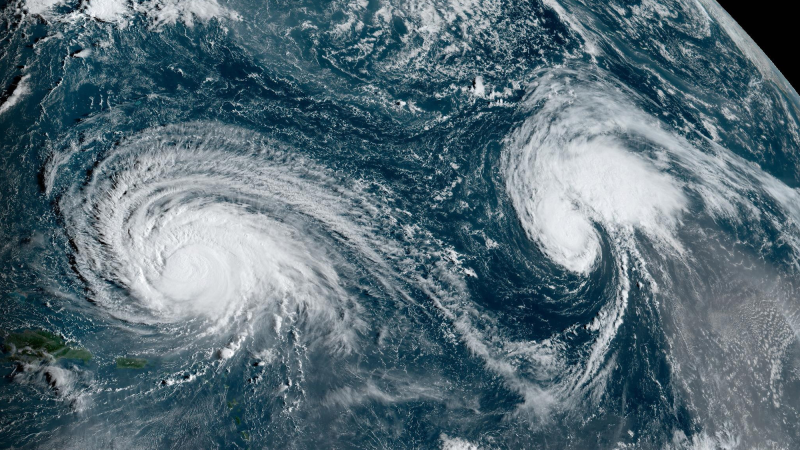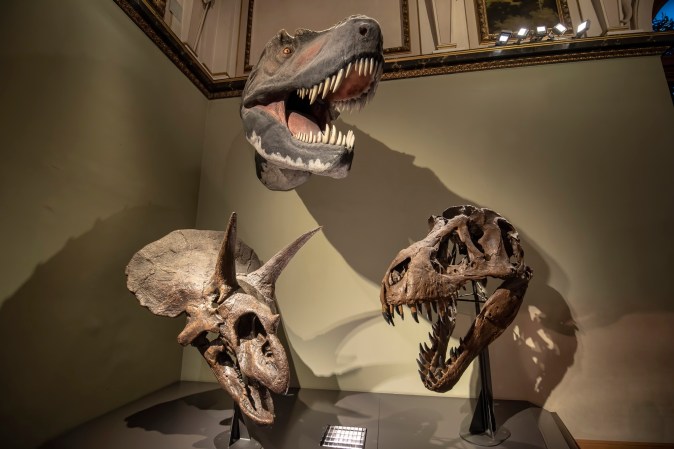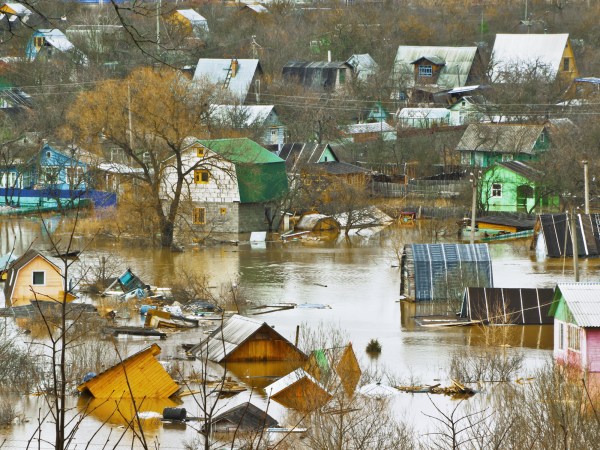

No one can entirely predict where the artificial intelligence industry is taking everyone, but at least the AI is poised to reliably tell you what the weather will be like when you get there. (Relatively.) According to a paper published on November 14 in Science, a new, AI-powered 10-day climate forecasting program called GraphCast is already outperforming existing prediction tools nearly every time. The open-source technology is even showing promise for identifying and charting potentially dangerous weather events—all while using a fraction of the “gold standard” system’s computing power.
“Weather prediction is one of the oldest and most challenging–scientific endeavors,” GraphCast team member Remi Lam said in a statement on Tuesday. “Medium range predictions are important to support key decision-making across sectors, from renewable energy to event logistics, but are difficult to do accurately and efficiently.”
[Related: Listen to ‘Now and Then’ by The Beatles, a ‘new’ song recorded using AI.]
Developed by Lam and colleagues at Google DeepMind, the tech company’s AI research division, GraphCast is trained on decades of historic weather information alongside roughly 40 years of satellite, weather station, and radar reanalysis. This stands in sharp contrast to what are known as numerical weather prediction (NWP) models, which traditionally utilize massive amounts of data concerning thermodynamics, fluid dynamics, and other atmospheric sciences. All that data requires intense computing power, which itself requires intense, costly energy to crunch all those numbers. On top of all that, NWPs are slow—taking hours for hundreds of machines within a supercomputer to produce their 10-day forecasts.
GraphCast, meanwhile, offers highly accurate, medium range climatic predictions in less than a minute, all through just one of Google’s AI-powered machine learning tensor processing unit (TPU) machines.

During a comprehensive performance evaluation against the industry-standard NWP system—the High-Resolution Forecast (HRES)—GraphCast proved more accurate in over 90 percent of tests. When limiting the scope to only the Earth’s troposphere, the lowest portion of the atmosphere home to most noticeable weather events, GraphCast beat HRES in an astounding 99.7 percent of test variables. The Google DeepMind team was particularly impressed by the new program’s ability to spot dangerous weather events without receiving any training to look for them. By uploading a hurricane tracking algorithm and implementing it within GraphCast’s existing parameters, the AI-powered program was immediately able to more accurately identify and predict the storms’ path.
In September, GraphCast made its public debut through the organization behind HRES, the European Center for Medium-Range Weather Forecasts (ECMWF). During that time, GraphCast accurately predicted Hurricane Lee’s trajectory nine days ahead of its Nova Scotia landfall. Existing forecast programs proved not only less accurate, but also only determined Lee’s Nova Scotia destination six days in advance.
[Related: Atlantic hurricanes are getting stronger faster than they did 40 years ago.]
“Pioneering the use of AI in weather forecasting will benefit billions of people in their everyday lives,” Lam wrote on Tuesday, who notes GraphCast’s potential vital importance amid increasingly devastating events stemming from climate collapse.
“[P]redicting extreme temperatures is of growing importance in our warming world,” Lam continued. “GraphCast can characterize when the heat is set to rise above the historical top temperatures for any given location on Earth. This is particularly useful in anticipating heat waves, disruptive and dangerous events that are becoming increasingly common.”
Google DeepMind’s GraphCast is already available via its open-source coding, and ECMWF plans to continue experimenting with integrating the AI-powered system into its future forecasting efforts.























